Exam Support
tutor2u in Dubai 2018
27th March 2018
Workshop summary written by Mitali Doshi, year 13 Dubai College.
On 24th March 2018, Dubai College was very fortunate to host Geoff Riley and Ruth Tarrant for a two-day workshop consisting of 8 sessions on the AS and A-level Economics Course.
Students from Dubai British School, English College, Sunmarke School, DESC and Dubai College filled the Auditorium on Saturday morning ready for two days’ worth of economics, quizzes and Geoff’s “gold-dust evaluation points”.
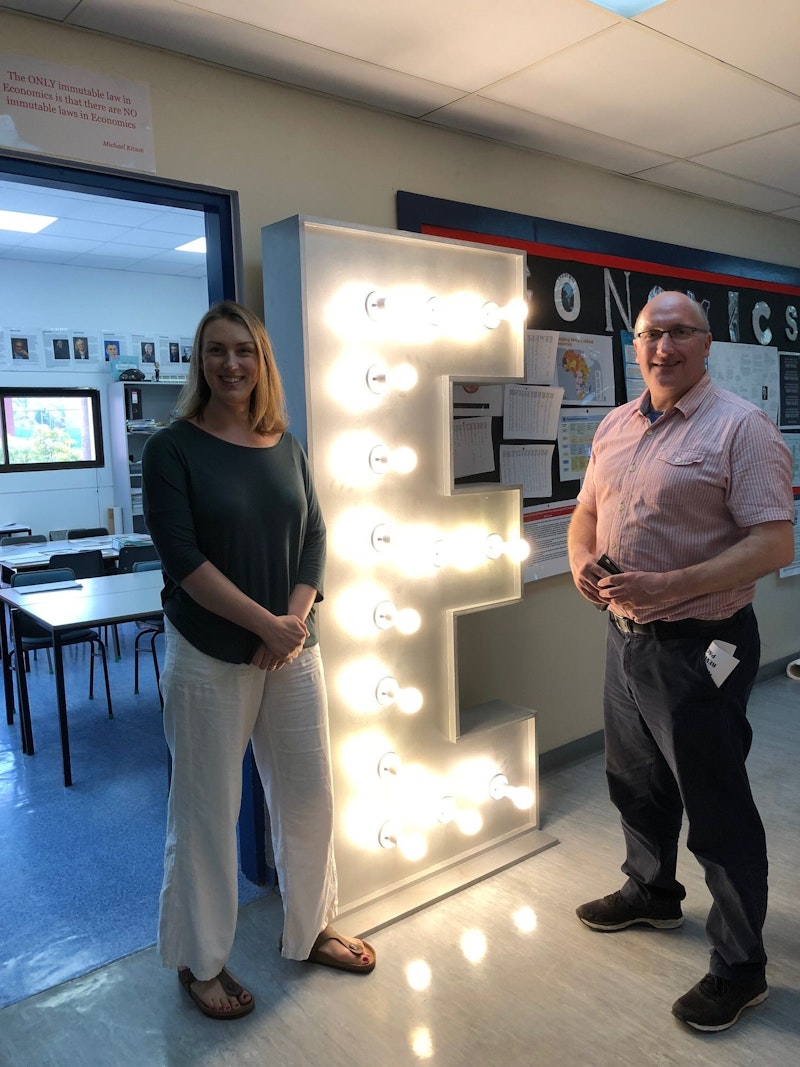
We were given two booklets (or as Geoff liked to call them “booooklet”) each which held a break-down of the course, revision guidance and study activities. Session 1 started with a back to basics of the more mathematical aspect of the course. Covering the numerical analysis of supply-demand diagrams, elasticities, inflation and index numbers, Geoff and Ruth highlighted the importance of these seemingly simple calculations. They helped us to review the vital formulas needed to help us achieve the top grades possible. A quick switch over into session two delved into the dynamics of market failure and subsequent government intervention. In this session I learnt the importance of being specific and succinct. Ruth understood that the education sector was a particular favourite among students, but she reflected how being precise would allow us to cross the standard par of marks, such as the emphasis on early years education and its long-term implications.
After a small break Ruth helped us revisit supply side policies and policy conflicts. What was most beneficial in this session was the case studies she introduced us to, so as to think outside the box, stand out from other candidates and gain a better chance for top marks. Instead of the standard education & training or improvements in healthcare, Ruth illustrated how social security benefits and the development of the gig economy could help us write a much more interesting answer with regards to supply side policies that could stimulate economic growth. I found our discussions on the UK youth unemployment particularly interesting, as whilst it was easier to condemn it for being at 12.5%, it was Geoff’s ‘fun fact of the day’ that put this number into a much more global outlook. He revealed that Spain faced youth unemployment between 30-40% whilst Tunisia suffered from 86% which made it easier to compare UK’s situation with other nations. This was an extremely pertinent lesson in that values and how they can be inferred can vary differently when seen through different lenses. I learned how it is important to bring a greater degree of global awareness to our answers in order to make them more refined.
Taking a quick lunch, we came back, keen to learn more and perhaps more importantly gain the highest marks in the mini quizzes in order to win the prestigious prize of the exemplar essay “booooklet”. The last session of the day saw the UK performance and demand side policies. Ruth and Geoff did an extremely interesting exercise in where we had to evaluate snippets of news and real-life scenarios. This was an introduction into honing our skills for the DRQ (and not the “data ignore questions”). We discussed the relations between agriculture, production, services and construction on economic growth with a reflection on the significance of the statistics provided.
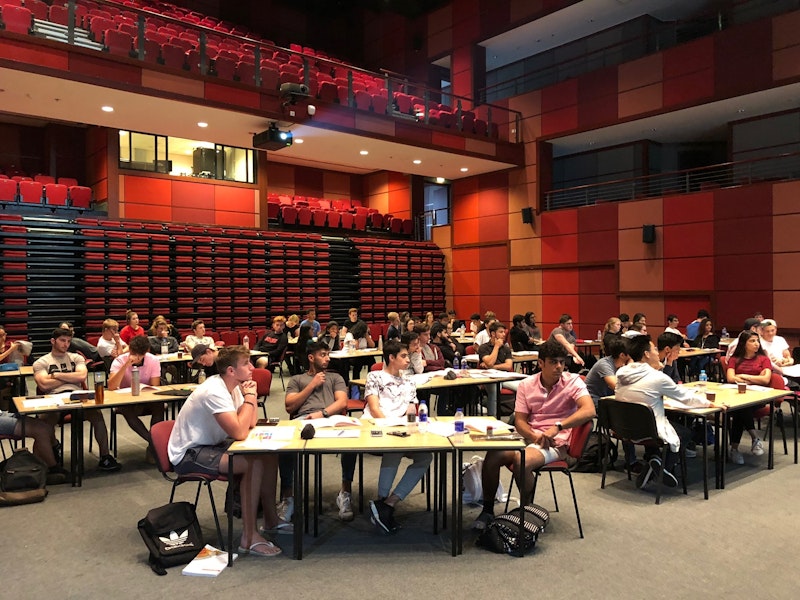
Both Geoff and Ruth outlined to us that whilst there was great emphasis on knowledge and economic theory, this would not be enough to obtain the highest marks. We must be able to mould that knowledge and apply to the real world. Thus, I was introduced to the PECAN PIE (sadly this was not the edible kind). I found this way of structuring invaluable as it would give me a clear indication of the direction I could take my essay in and the ‘Contextualized Analysis’ would give the essays strong foundations based in the real world. We were told that to have knowledge is one thing but to portray it in a correct manner is another skill entirely, one which Geoff and Ruth did not leave without embedding within the students.
After a brilliant day one, I was unsurprised at the level of engagement on day 2 as students asked and answered questions with confidence and assurity. Mainly for the year 13 course, the content was slightly more advanced, but Geoff therefore made it all the more engaging. With session 1 we dove straight into economic policy and I learnt that monetary policy was not limited to just the altering of interest rates and quantitative easing but also consisted of inflation targeting (first done by New Zealand as per Geoff’s seemingly limitless bank of facts) and forward guidance. The concept of forward guidance was intriguing as it tied in with the theory of animal spirits and behavioural economics. Ruth illustrated how we can take our AS level knowledge and upgrade it in order to provide more sophisticated and worldly embedded answers. Evaluation was a key focus throughout the day as we learnt to always consider multiple perspectives of the other stakeholders providing a more holistic view of our arguments. Thus, we were introduced to APE. We were told to question the assumptions of the theory, consider alternative perspectives of different economies and stakeholders and ultimately to always try and provide evidence through case studies and statistics. This would help constructs the “in theory … but in practice …” paragraphs which were personal favourite of Ruth.
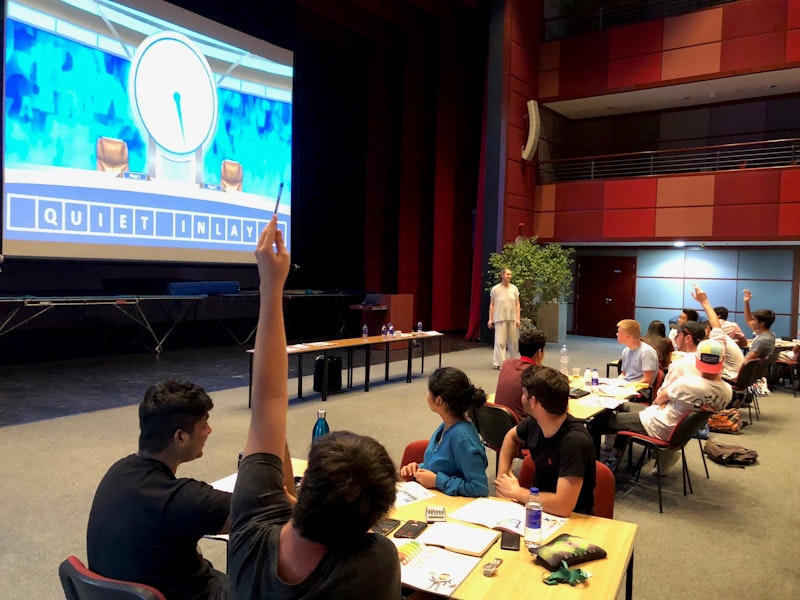
Session two extended on this line with a focus of the global economy. After a quick battle of #fakenews between Geoff and a student, I was provided with a plethora of headlines and context that would be highly beneficial to thread throughout my answers. We analysed an article concerning America’s protectionist policies under Trump which alluded to his recent steel restrictions and the drastic implication on other economies such as Mexico and China. We used our newly learned APE method to write an evaluation of this article and then discussed the methods of structuring our answers as well as the actual content of it.
Taking a short break, we rushed back into some microeconomics with theory of the firm. Geoff and Ruth did a crash course on the 5 market structures and did a mini competition quiz on the associated cost and revenue diagrams of each. I found the case studies to be refreshing in their uniqueness as we explored the global denim industry, the UK gin market and the US cinema market which could be used to gain the elusive application marks. In groups we also read some evaluation paragraphs of varying marks and dissected their strengths and weakness so that we could later use this to create one of our own. Geoff and Ruth then provided a tentative template of a good evaluation paragraph and how it is of utmost importance to focus on key stem words in order to truly answer the question and remain concise and succinct.
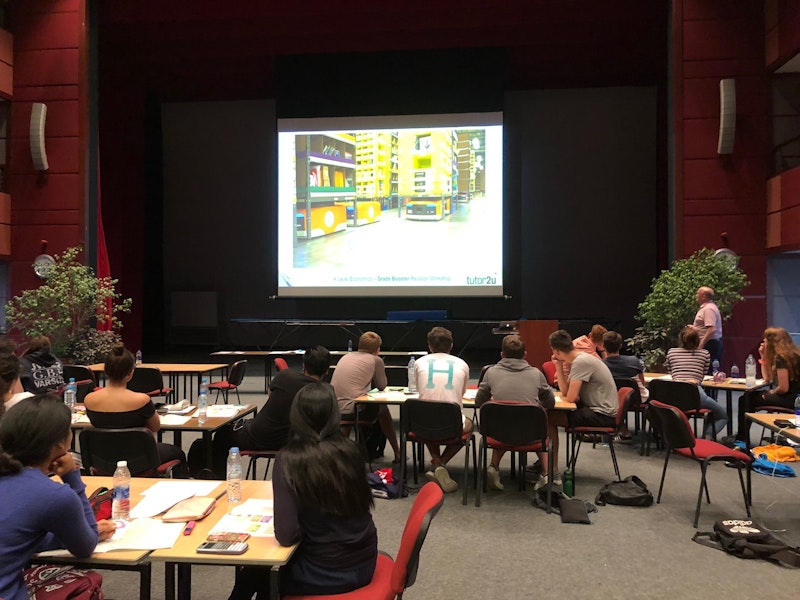
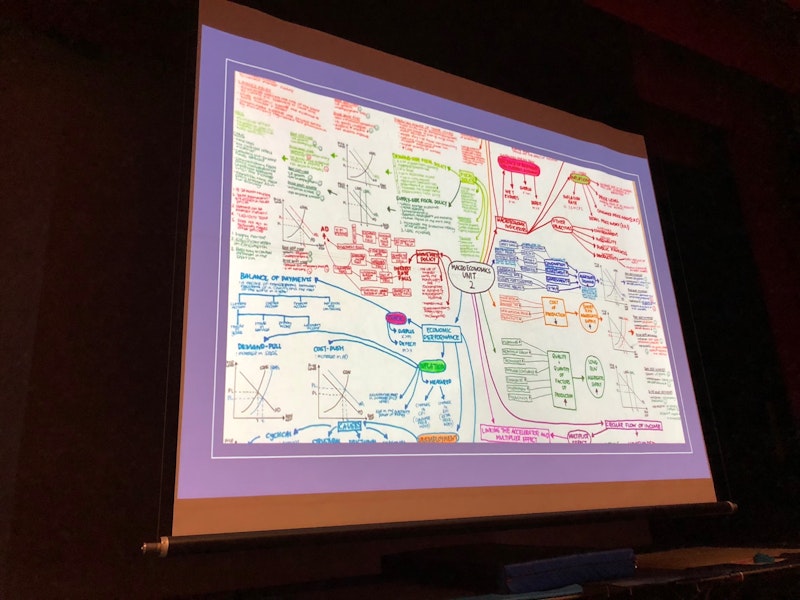
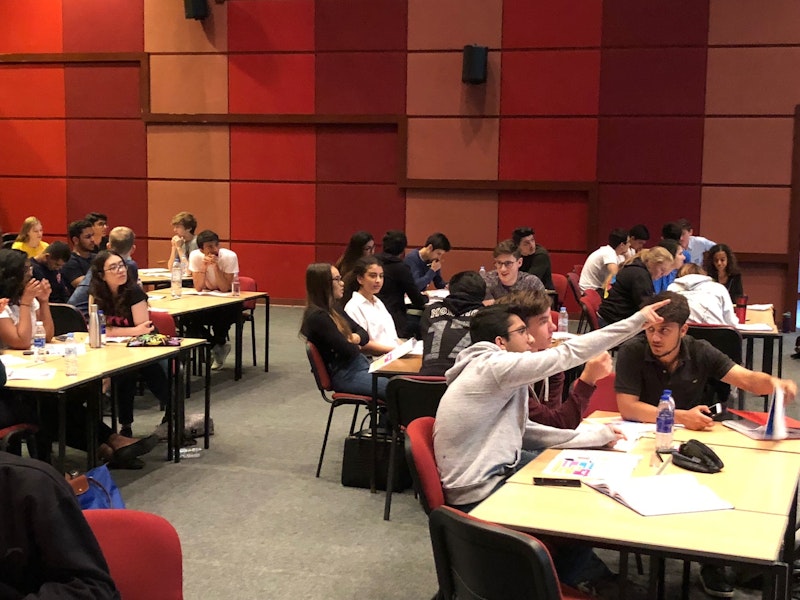
You might also like

OCR F585 June 2016 Case Study Articles
2nd November 2015

Answering Supported Multiple Choice in Unit 3 Economics
12th April 2016

Eight more (Edexcel) Synoptic Practice Questions
16th May 2018

60 Second Shorts on Key Economic Concepts
4th April 2023

Economics Topics in 60 Seconds!
2nd May 2023

Edexcel (A) A Level Economics Synoptic Connections Planner
24th January 2024

Aiming for A-A* Economics 2024 - Live Daily Revision
17th March 2024